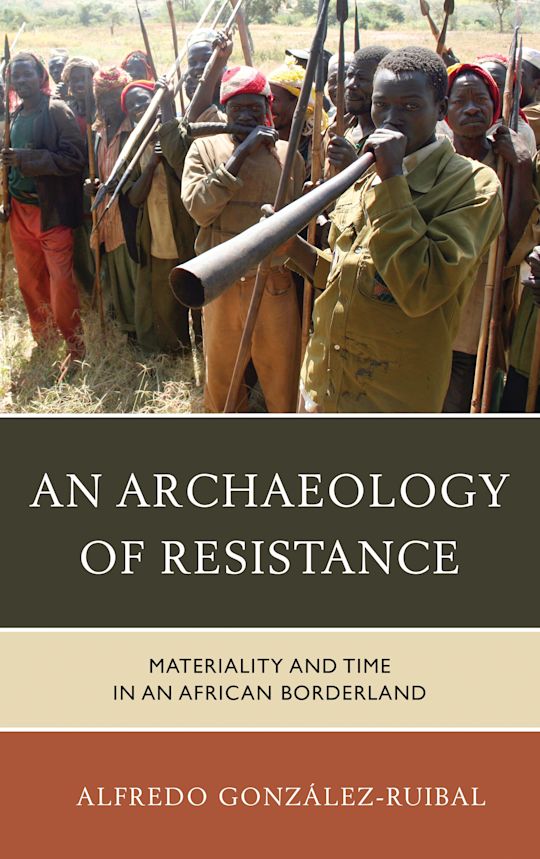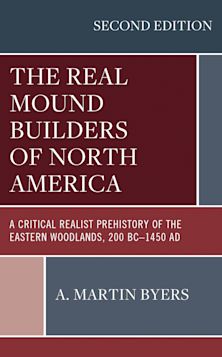- Home
- ACADEMIC
- Archaeology
- Archaeology - Other
- An Archaeology of Resistance
An Archaeology of Resistance
Materiality and Time in an African Borderland
An Archaeology of Resistance
Materiality and Time in an African Borderland
You must sign in to add this item to your wishlist. Please sign in or create an account
Description
An Archaeology of Resistance: Materiality and Time in an African Borderland studies the tactics of resistance deployed by a variety of indigenous communities in the borderland between Sudan and Ethiopia. The Horn of Africa is an early area of state formation and at the same time the home of many egalitarian, small scale societies, which have lived in the buffer zone between states for the last three thousand years. For this reason, resistance is not something added to their sociopolitical structures: it is an inherent part of those structures—a mode of being. The main objective of the work is to understand the diverse forms of resistance that characterizes the borderland groups, with an emphasis on two essentially archaeological themes, materiality and time, by combining archaeological, political and social theory, ethnographic methods and historical data to examine different processes of resistance in the long term.
Table of Contents
Acknowledgements.
Introduction.
Outline of the book.
Chapter 1. Time and materiality.
1.1. Archaeological ethnographies.
1.2. Archaeologies of resistance.
1.3. The Archaeology of Borderlands
1.4. Time.
1.5. Materiality.
Chapter 2. Ecology of a shatter zone.
2.1. Landscapes.
2.2. States.
2.3. Deep rurals and peasants.
2.4. Bandits, missionaries and travelers.
Chapter 3. Direct action against the state: the Gumuz.
3.1. Resisting the state north of the Blue Nile.
3.2. The enemy’s point of view: origin myths, things and knowledge.
3.3. Making a community of equals: technology, consumption, exchange.
3.4. Bodies of resistance.
3.5. A sense of danger.
Chapter 4. Between domination and resistance: the Bertha.
4.1. Memories.
4.2. A fractured identity.
4.3. Double belief: Between paganism and Islam.
4.4. Double materiality.
4.5. Double performance.
Chapter 5. Of mimicry and Mao.
5.1. The making of a subaltern people.
5.2. Invisibility and hybridity.
5.3. The gender of resistance.
5.4. A space for resistance.
5.5. Remembering the forest.
Epilogue and Conclusions
References.
Index.
About the Author.
Product details
| Published | Mar 27 2014 |
|---|---|
| Format | Ebook (Epub & Mobi) |
| Edition | 1st |
| Extent | 412 |
| ISBN | 9781442230910 |
| Imprint | Rowman & Littlefield Publishers |
| Illustrations | 74 b/w photos; 1 table |
| Series | Archaeology in Society |
| Publisher | Bloomsbury Publishing |
About the contributors
Reviews
-
[A] remarkable book that, in keeping with the title, defies and indeed resists easy classification. . . . Materiality is what this book is about, and it serves as the lens through which to achieve a deeper understanding—and not just a thicker description—of the multiplicity and complexity of resistance and state power. . . . [T]his is an outstanding book that not only offers a rich, diachronic account of a region that is not well studied at all, but that most of all makes an original contribution to debates of resistance and state formation; it also vividly underscores the rich potential of archaeological material culture studies.
Antiquity
-
This thick, erudite, and complicated ‘archaeological ethnography’ dealing with time and the significance of contemporary material culture has a simple purpose, which is to demonstrate how minority borderline ethnic groups have resisted incorporation by the state. After an introductory chapter reviewing the ideas of other potential social theorists, González Ruibal achieves his goal with the detailed analysis of three different indigenous groups on an Ethiopian/Sudanese border that has produced neighboring centralized polities that by their nature are predatory. The author's commentary and conclusions about how the Gumuz, Bertha, and Mao peoples manage this outcome in different ways are fascinating and for the most part convincing. As this original text will be of interest to Africanists of various disciplines, it belongs in every serious university library. Summing Up: Highly recommended. Upper-division undergraduates and above.
Choice Reviews
-
An Archaeology of Resistance confronts predominant thought and practice in archaeology. In this contribution to the Archaeology and Society Series, González-Ruibal makes sustained and nuanced arguments about African resistance, time, and materiality. He engages contemporary villagers in the Sudanese-Ethiopian borderland. Egalitarian communities in this region have persisted within and alongside states for millennia. . . .An Archaeology of Resistance is clearly written and well-argued. The volume is provocative. It makes a unique contribution to studies of contemporary archaeology, resistance, and Northeast Africa. . . .González-Ruibal’s approach to time and materiality among egalitarian groups shows how communities express their ethos in things that can be mobilized to resist oppression by the state and to maintain egalitarian values. This handsome volume will interest archaeologists, anthropologists, political scientists, and those who study material culture.
Journal Of African Archaeology
-
[This book] is a very important and topical contribution to anthropological discourse and theory. . . .Gonzalez-Ruibal’s book shares the wealth of and sense for ethnographic detail with 'classical' ethnographies, but can build on a broader basis of existing historical and anthropological research.
Anthropos
-
I highly recommend this book as a very interesting and thought-provoking study that provides a novel approach to studies of resistance in borderlands and other contexts. The study contributes rich ethnographic and historical detail for these three groups and is a major contribution to the history of Ethiopia’s borderlands and subaltern people. It will surely be of interest to researchers of materiality, temporalities and the processes of social complexity.
Azania:Archaeological Research In Africa
-
The book combines fascinating ethnographic detail with firsthand comparative data of the ethnic groups in present day Beni Šangul-Gumuz. . . . González-Ruibal’s book sheds new light on a forgotten and understudied area. With its insights both into the deep past and the complex cultural present of western Ethiopia, the book is a much needed contribution to the ethnography of this area.
Aethiopica: International Journal of Ethiopian and Eritrean Studies

ONLINE RESOURCES
Bloomsbury Collections
This book is available on Bloomsbury Collections where your library has access.


































